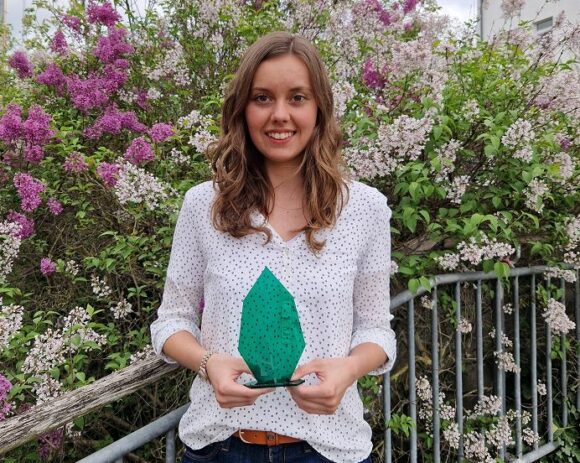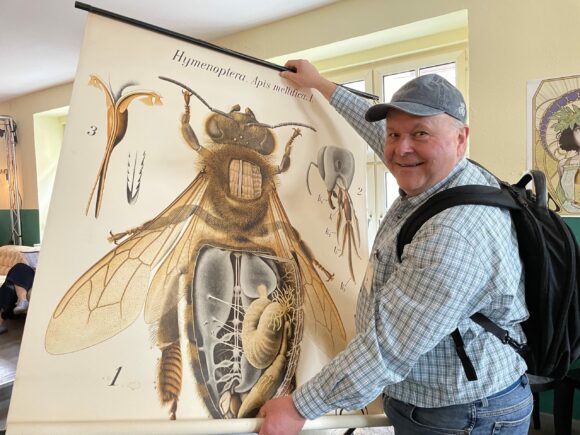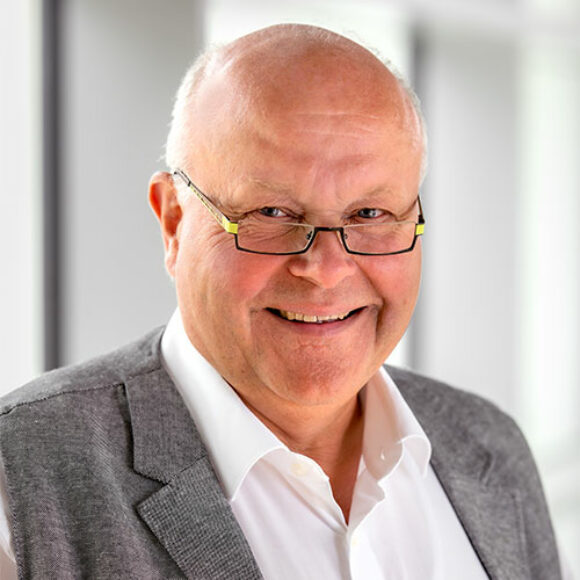Hof University of Applied Sciences continues to expand its research. Since the end of last year, the Institute for Economic and Organizational Research (iwo) has for the first time given the large area of business its own research institute. In addition to the Competence Center for Digital Administration (KDV), which has been active for some time, three research groups and two research projects have been launched. Prof. Dr. Jens Kirchner, Dean of the Faculty of Business Administration and Economics and Head of the Institute for Economic and Organizational Research at Hof University of Applied Sciences, talks about the background and the tasks of the “iwo” in an interview.

Prof. Kirchner, is the iwo a pure research institute in the traditional sense?
“First of all, our main objective was and is to use the new institute to create an umbrella for the diverse research activities in the fields of economics, law and behavioral sciences at our university. Against this background, the institute deals with strategic, operational-process-oriented, legal and social interaction and behaviour of individuals in business and organizations. In line with the mission statement of universities of applied sciences, the focus here is also on the concrete applicability of research findings. Hence the title of the new institute: “Institute for Applied Economic and Organizational Research.”
In practical terms: how many people work at the institute and where is it located?
“The iwo Institute currently comprises three research groups, in which around twelve people work, as well as two other research projects, in which a further three people are involved. In terms of location, the institute is integrated into the Faculty of Business Administration and Economics, as the majority of these people are of course also involved in teaching.”
What specific topics are the research groups working on?
“The “Digital Administration Competence Center” works under the umbrella of the institute. Its aim is to support public administrations in becoming citizen-oriented, efficient, agile, sustainable and, of course, above all digital. Based on a self-developed digital maturity model, the situation in the areas of data and technology is analysed and examined to determine whether a strategy is in place with the associated management, how the processes run and how the organizational structure is set up. Digital solutions are then developed and new approaches researched as part of scientifically oriented projects. The competence center is headed by Prof. Dr. Thomas Meuche and supported by the Upper Franconia Foundation and the Bavarian State Ministry for Digital Affairs, among others.
We are now also focusing our research on the population of best agers. These are people between the ages of 50 and 69 – and senior citizens in their 70s. Their share will continue to grow in most highly developed economies. This group of people is often very brand- and quality-conscious and also open to new technologies. Against this background, a research group was set up under my leadership with the aim of investigating how new technologies affect the purchasing behavior of this target group and what starting points there are for companies to improve their brand management in consideration of these technologies. In addition to myself, two doctoral students are currently working in this research group. We are cooperating with the chair of Prof. Dr. Jörg Henseler at the University of Twente in the Netherlands. On the corporate side, we are cooperating with the internationally active GOLDNER Fashion Group, a company from our region that specializes in the best ager market with several brands.

Our third research group, in which Prof. Dr. Christine Brautsch and Prof. Dr. Günter Hilmer are involved and which is headed by Tina Wiegand, conducts research at the interface of digitalization and sustainability with a particular focus on topics relating to the circular economy. Here, the challenges and opportunities in the digital and sustainable transformation of processes, products and business models are analyzed with a focus on SMEs from different sectors. Based on this, blueprints and model processes are developed and recommendations for action are derived for the implementation of European regulations as part of the Green Deal. The introduction of a digital product passport and corresponding knowledge and practice transfer projects are examples of research activities.”
Are there any other plans for research?
“Yes, under the direction of Prof. Dr. Carsten Stark, two further research projects with a regional focus are currently underway: HofKult and MigraInt. The aim of HofKult is to increase the awareness and participation of younger sections of the population in high culture in the city of Hof. There is a cooperation with the Hof Theater and the Hof Symphony Orchestra. The project is funded by the Hermann and Bertl Müller Foundation. On the basis of valid data on the age structure of the audience, insights are gained into the possibilities of using social media to generate new audience cohorts and recommendations for action are derived to improve the situation with regard to the participation of younger sections of the population. MigraInt is a cooperation project with the city of Hof, in which migration movements and population perceptions in the city are presented and qualitatively evaluated. The integration requirements are then derived on this basis.”
What medium and long-term goals have you set yourself with the new institute?
“In the medium term, we primarily want to significantly expand the diverse research activities of our professors in the fields of economics, law and behavioral sciences and strengthen their external impact. Our long-term goal is to become a beacon for application-oriented research topics in the field of the digital transformation of business and administration.”







